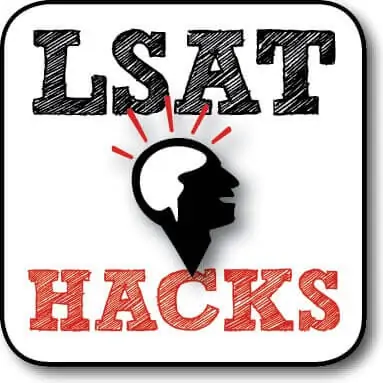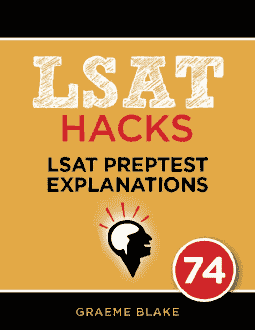QUESTION TEXT: Under the legal doctrine of jury nullification, a…
QUESTION TYPE: Method of Reasoning
CONCLUSION: Jury nullification is a bad idea.
REASONING: Juries often make serious mistakes when they can nullify a conviction if they think it’s unfair.
ANALYSIS: The argument says that jury nullification is intrinsically flawed. It fails because nullification relies on jurors being objective. Since jurors aren’t objective, they make mistakes.
___________
- The argument didn’t do this.
Example of method: Jury proponents are fat capitalist oppressors. Therefore they are wrong. - This is tempting. But an inconsistency is a precise thing. It’s when two statements literally contradict each other. That didn’t happen.
Example of flaw: The proponents of jury nullification say that it will frequently avoid serious injustices, and they also argue that we shouldn’t worry about it because nullification isn’t used very much. But this is inconsistent: If jury nullification isn’t used much, then it can’t frequently avoid injustice. - This didn’t happen.
Example of method: The proponents of jury nullification say that it only rarely leads to mistakes. But when we analyzed 1000 cases of nullification, 200 of them were mistaken. - This didn’t happen.
Example of method: The proponents of jury nullification say that it never leads to serious error. But in the Roberts case, the jury let a murderer go free, and then he killed three more people. - CORRECT. The undesirable consequences are the serious mistakes that nullification can lead to.

Free Logical Reasoning lesson
Get a free sample of the Logical Reasoning Mastery Seminar. Learn tips for solving LR questions


Are there definitive boundaries that can describe “general claim”? Is it a widely-recognized claim that most people would agree with, but a small minority might have reservations about?
–>I’m wondering if there’s a way to eliminate D in this question by saying that the stimulus didn’t include a general claim.
general claim = something that isn’t specific. It has nothing to do with what people agree with. For example:
* All politicians are lizard aliens and
* Good food is tasty
Are both general claims. The first one is believed by almost no one, the second one is believed by almost everyone. But both claims are equally general.
Note: This is an old comment but I wanted to clarify the point.
I ultimately picked (E), but I’m still not convinced that (C) is obviously wrong. The author tells us that the argument in favor of nullification relies on the jurors’ objectivity. A natural way to read this is that he thinks the argument depends on the premise that jurors are objective. The author then goes on to show why this claim is mistaken — hence, what he’s doing is showing that a premise on which the argument for nullification depends is false.
It’s important to note that that the author isn’t really saying that “jurors are objective” is an explicit or even tacit premise of the arguments of the proponents (if you look closely at the question stem, you’ll see that it’s asking you not to undermine the doctrine itself, but the argument made by proponents of the doctrine). The author is saying that the doctrine relies excessively on juror objectivity.
So, the distinction here is between the doctrine and the proponents of the doctrine.
The proponents are simply making the case for the practice being legitimate on the grounds that it helps shield against injustice; this doesn’t necessarily mean that they stand by every part of the doctrine.
So, even if the doctrine itself explicitly stated that jurors are objective, (C) still refers to premises put forward by the proponents of the doctrine. We can’t say with any certainty that the proponents put juror objectivity forward as a premise.
I had the exact same objection as MB, but this clears it up perfectly. Many thanks!
I ultimately picked (E), but I’m still not convinced that (C) is obviously wrong. The author tells us that the argument in favor of nullification relies on the jurors’ objectivity. A natural way to read this is that he thinks the argument depends on the premise that jurors are objective. The author then goes on to show why this claim is mistaken — hence, what he’s doing is showing that a premise on which the argument for nullification depends is false.
That’s a good point. But there are a couple problems: the author says the argument relies excessively on juror objectivity. Falsifying the premise would mean there is no objectivity, but that isn’t so. The argument is merely that jurors make mistakes, too many.
So this is akin to saying “We bought a cat to help with mice, and they do contribute to solving that goal, but they also leave lots of fur around”. Prevent injustice in the context of the argument likely means convicting the innocent, whereas a juror’s mistake involves releasing the guilty. Usually we mean injustice to mean judging and punishing someone unfairly. So failing to prosecute is more of an error than an injustice.
Note: This is an old comment but I wanted to clarify the point.